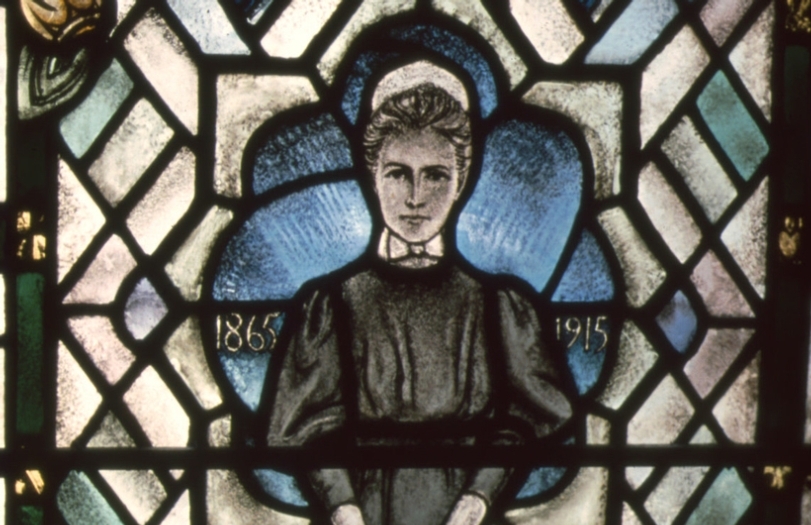On This Day: Edith Cavell
12th October marks the anniversary of the execution of British nurse and WWI heroine Edith Cavell.
The wartime heroine became famous in 1915 when her decision to stay behind in German-occupied Belgium to care for soldiers on both sides of the conflict ultimately lead to her execution. Her bravery and selflessness is commemorated in a stained glass window honouring pioneering female humanitarians in our All Saints' Church in Cambridge.
Who was Edith Cavell?
The governess-turned-nurse was born in Norfolk and turned to nursing relatively late in life, at the age of 30 years, after a period caring for her sick father.
Within 10 years Cavell was sufficiently skilled at her profession to be recruited as the head of a new nursing training school in Belgium. Within a year she was training nurses at three hospitals and had launched a journal on professional nursing entitled L'infirmière. She was at the forefront of the movement to professionalise and modernise her field, firmly advocating that nurses should be skilled and trained professionals.
First World War and German occupation
When the war broke out in 1914 she told her nurses that they must not take sides in the conflict - that any wounded man must be medically treated and each was equal at the point of need. This was borne out by her work as the nursing head of a Red Cross hospital in Brussels that offered medical aid to any injured soldier. When the Germans took the city, Cavell was given the opportunity to return to Britain but opted to stay with her patients.
However after the occupation Cavell decided to shelter injured Allied soldiers and to supply them with money and false papers, helping over 200 cross the border into the Netherlands and escape to safety.
In August 1915, she was arrested for harboring Allied soldiers and charged with treason.
Execution
Cavell was found guilty of treason by a military tribunal, and sentenced to death. Her sentence shocked the world. Appeals for mercy were made by neutral parties such as the Vatican, Spain, and the United States. Despite all efforts, Cavell was executed by firing squad on the morning of 12 October, 1915.
Commemoration
Cavell’s work inspired the foundation of the Cavell Nurses' Trust, as well as the names of hospitals, streets and mountains worldwide. She is commemorated in the stained glass ‘Women’s Window’ in our All Saints’ Church on Jesus Lane in Cambridge alongside fellow notable humanitarians Elizabeth Fry and Josephine Butler.
Visit
All Saints’ Church is open to visitors year-round. You can view the Edith Cavell window, as well as Arts & Crafts master-strokes from Morris & Co and the best artists of the era.

